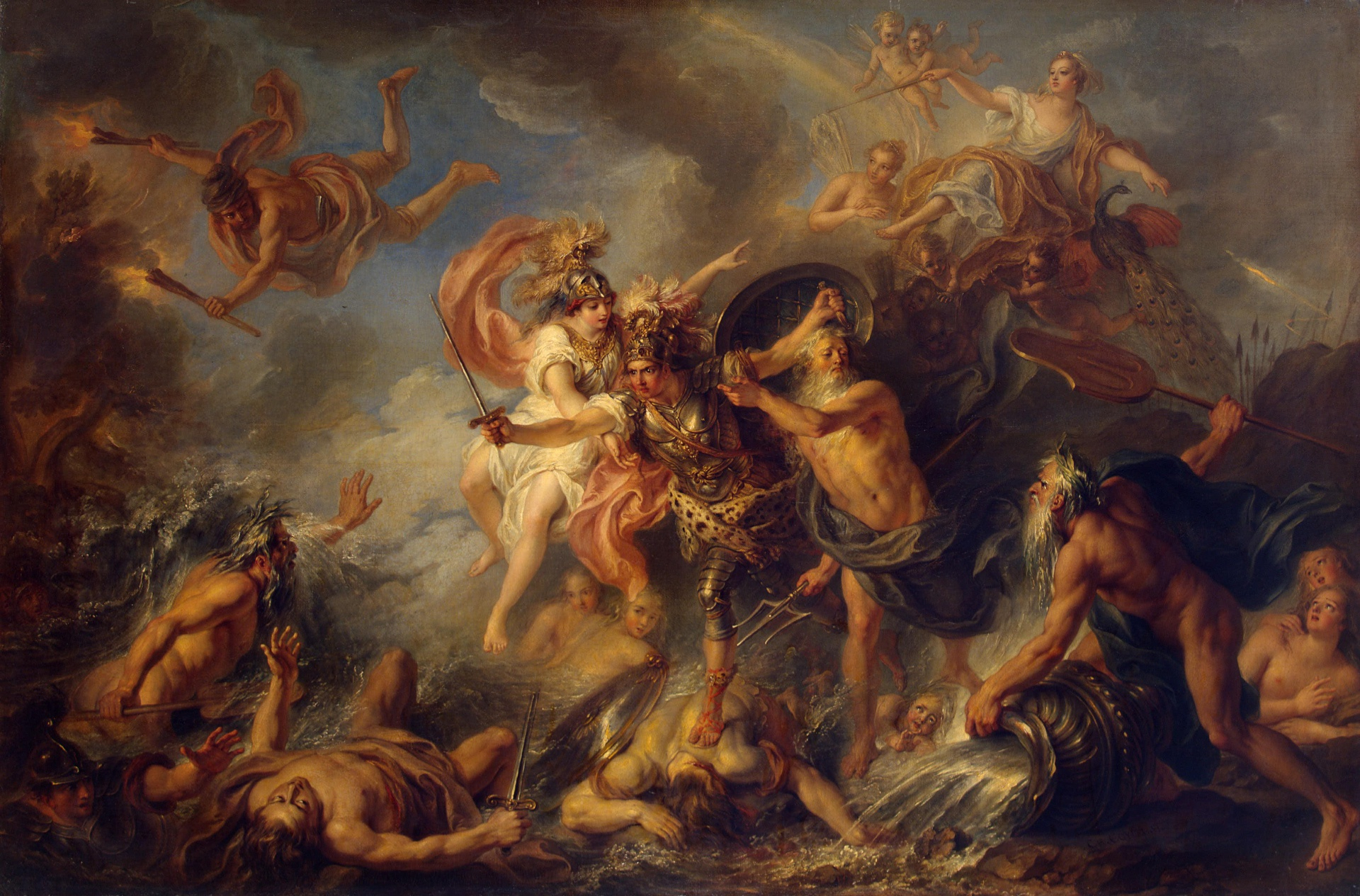Friendship and Two Epics
The opening of Gilgamesh states that it is an old story “About a man who loved and lost a friend to death.” This statement also holds true for the Iliad; friendship and its loss represent both a motivating force and an important source for a happy life in both epics. Both Achilles and Gilgamesh lose their respective friends, Patroclus and Enkidu, through actions that they themselves precipitated. And once the heroes lose their soul mates they are victims of despair which cannot be alleviated by other distractions, even women.
Homer begins the Iliad disclosing his subject: “The wrath of Achilles is my theme” which causes so much suffering and death for the Achaeans. Achilles’ pride and indignation at the actions of Agamemnon will not allow him to join his fellow Argives on the battlefield. Agamemnon breaks Achilles’ trust by taking what is rightfully his, Brisies. Achilles, one who obviously holds friendship, and its concomitant values like trust, reacts by withdrawing his support of the Achaean forces, saying, in effect, I’ll show you, like a wounded child. Achilles does, in fact, show Agamemnon his obdurate immaturity by allowing the slaughtering of the Argive army and his own friend Patroclus.
Gilgamesh, a victim of his own pride and inexorable sense to conquer, instigates Enkidu’s demise at the hands of the Bull of Heaven. Even after the many warnings and apprehension of Enkidu, Gilgamesh stubbornly faces Humbaba, incurs the anger of Ishtar, and, in effect, kills Enkidu.
Both Gilgamesh and Achilles show despair at the death of their soul mates and both must vent their fury and frustration. Gilgamesh vows to find an end to death while Achilles becomes Death’s scythe. Gilgamesh has the answer to death in his hand, but, like a fool, he looses this secret. Achilles, vowing to let the vultures and dogs feast on the corpse of Hector, also does not succeed. Yet, both heroes are transformed, enlightened. Gilgamesh returns to Uruk after having “recognized his loss.” He is at peace with himself having realized that all must feel the hand of death, and realizes the cultural achievements of his society. Within these achievements Gilgamesh can find solace — even if it is just for a moment. Only the culture can truly grant immortality, and, in the case of Gilgamesh and Enkidu, it has.
The bloodthirsty and merciless Achilles wastes the Trojan forces, kills Hector, sacrifices Trojan men on the pyre of Patroclus, and wants the body of Hector to be the food for carrion feeders. His anguish caused by Patroclus’ death is like a spear in Achilles’ side, wounding him and those around him. Yet, Achilles agrees to ransom Hector to Priam — only somewhat compelled by Zeus. Achilles sees the distraught and suffering Priam and “they both broke down.” Achilles returns Hector to Priam and says to the old man, “You must endure and not be broken-hearted. Lamenting for your son will do no good at all.” Achilles then promises to waylay fighting until the Trojans have properly mourned for their dead champion. Atypical for Achilles throughout the Iliad, he finally shows compassion, not to the enemy, but to a fellow human being that has lost someone special. Perhaps Achilles’ own rational statement about lamentation doing no good made him realize that his own sorrow will not bring back Patroclus, and this, in turn, bring out Achilles’ humanity. Seemingly both Achilles and Gilgamesh learned how to be more human from their loses and subsequent trials.

